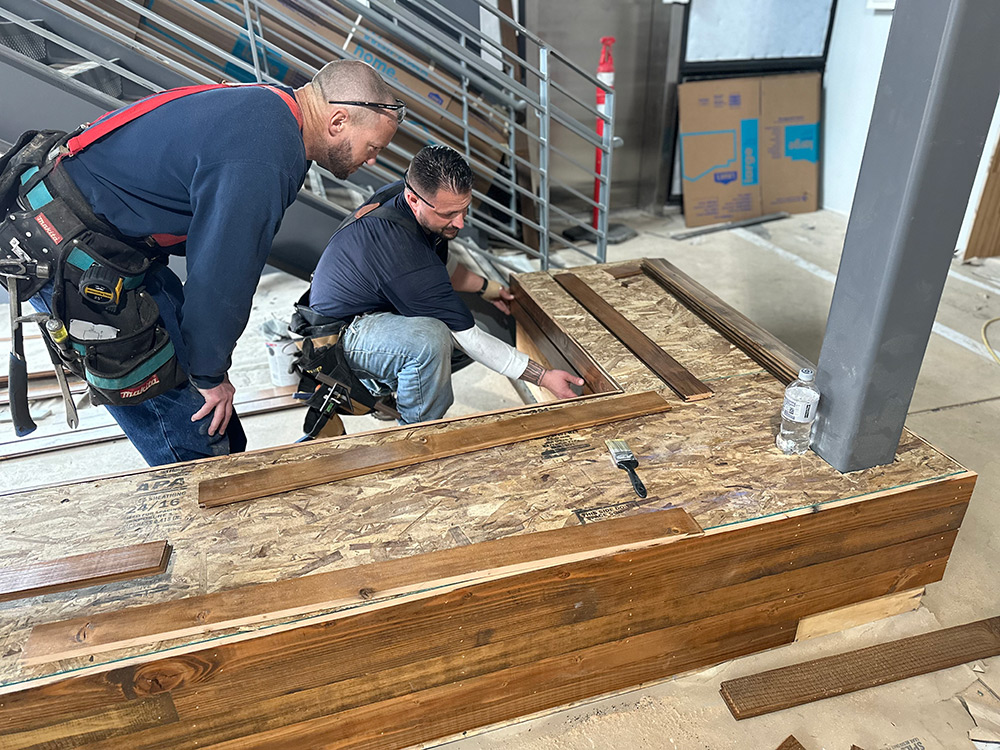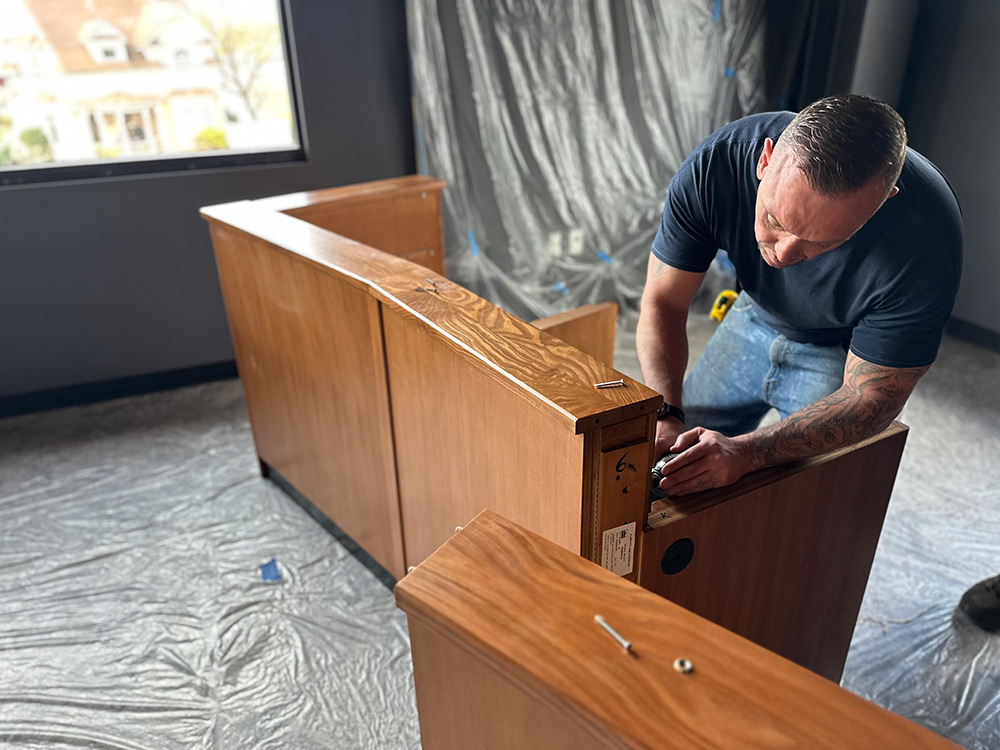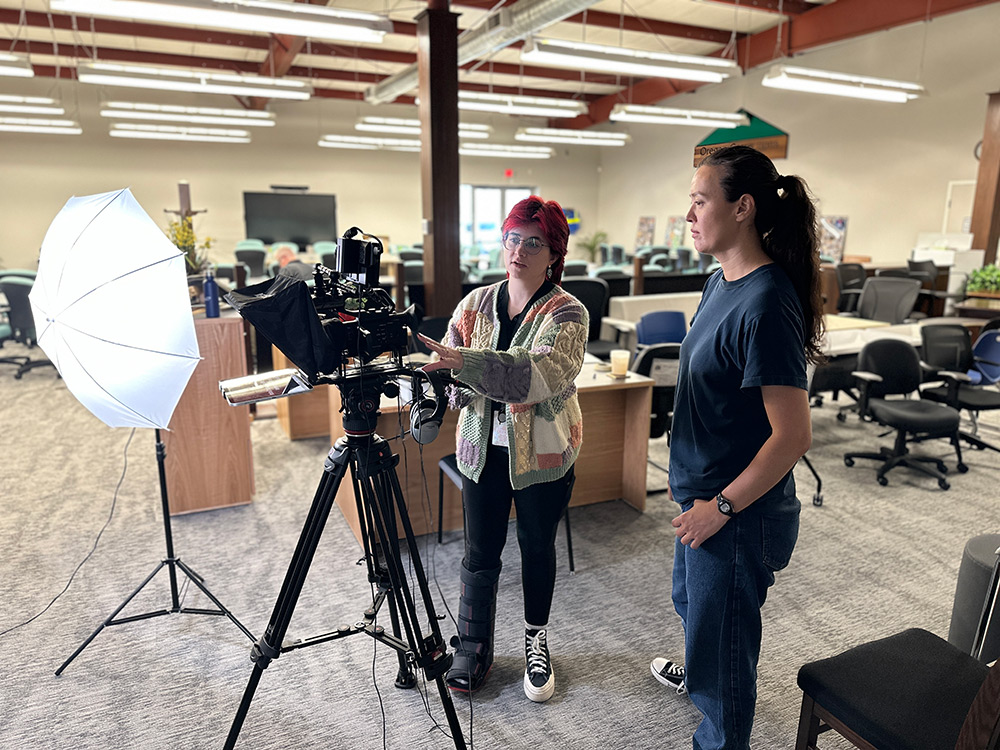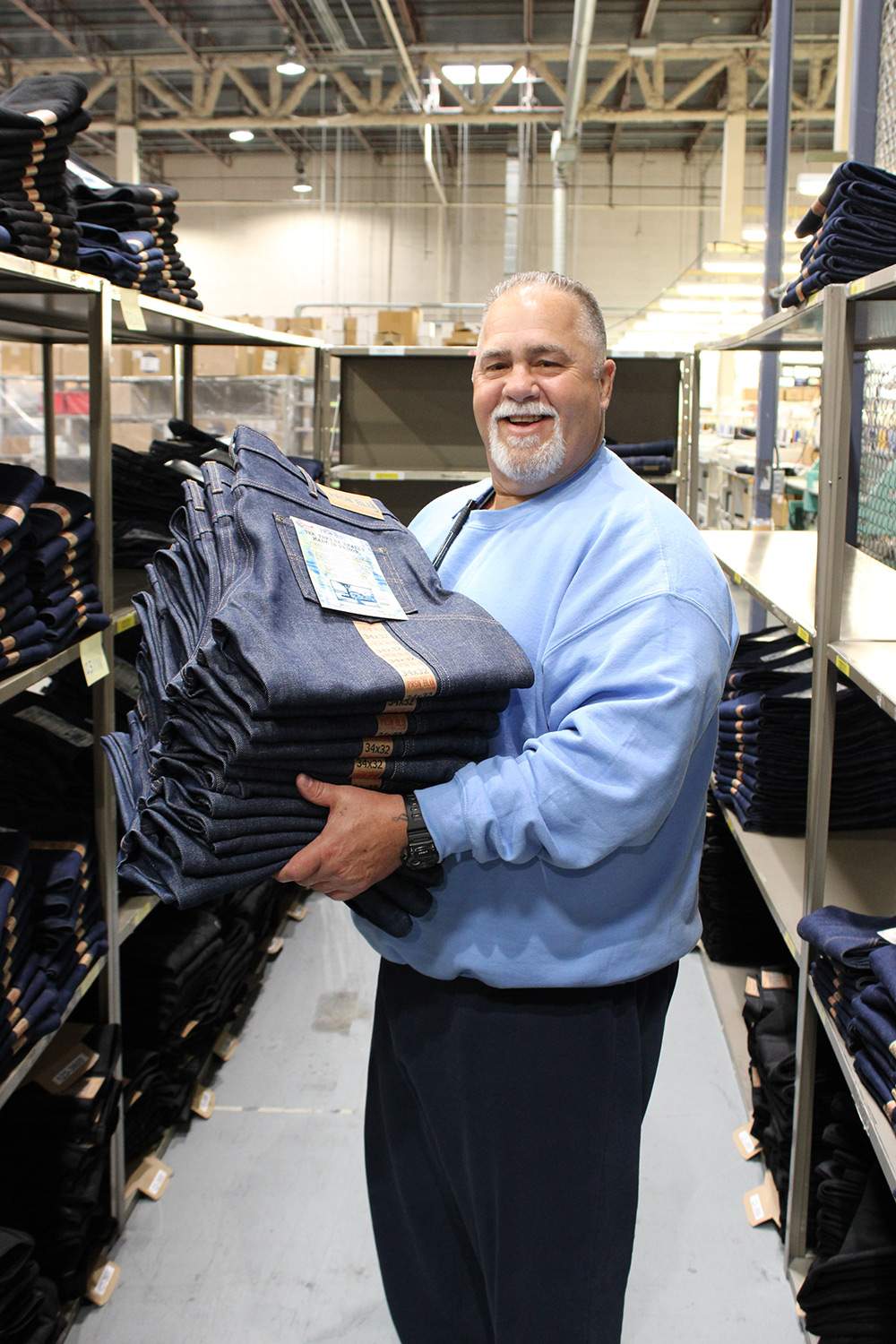0 items | $0.00
At Oregon Corrections Enterprises (OCE), we believe in second chances. Our programs provide adults in custody (AICs) the opportunity to develop real-world job skills, build strong work ethics, and prepare for a successful return to their communities. By fostering growth, opportunity, and hope, we help people transform their lives and strengthen Oregon communities.
Nearly half of the 1,400 participants work on computers daily, using modern software and systems that prepare them for today's job market—not just in labor, but in administrative and technical careers. These experiences help reduce recidivism and create safer, healthier communities for everyone.
Voluntary Programs with Real Opportunity
Participation in OCE programs is entirely voluntary. AICs must apply, interview, and be accepted into positions. Once hired, they gain more than technical training—they also learn teamwork, responsibility, and accountability.Participants can:
OCE's training spans:
- Earn promotions and raises based on performance
- Advance into lead worker roles to mentor others
- Access training in a wide range of professional and technical fields
OCE's training spans:
- Inventory management and logistics
- Accounting and clerical work
- Marketing and business operations
- Multimedia design and creative services
Nearly half of the 1,400 participants work on computers daily, using modern software and systems that prepare them for today's job market—not just in labor, but in administrative and technical careers. These experiences help reduce recidivism and create safer, healthier communities for everyone.



Our Partnerships
We are proud to partner with local businesses, nonprofits, schools, and government organizations to provide high-quality products and services while offering meaningful work opportunities to AICs. These partnerships help us align training with Oregon's workforce needs and expand the impact of our mission.
Our Commitment
Working with OCE is more than a job—it's a chance to make a difference. Our staff, partners, and participants all share a common goal: fostering transformation. Every role within OCE supports purpose, skill-building, and a pathway to a better future. Together, we're building stronger communities and creating pathways to brighter futures.Our History
Corrections industries have been part of Oregon's correctional system for more than 160 years. Originally focused on producing goods for internal use, these programs gradually expanded to serve communities across the state. Over time, operations evolved to include furniture manufacturing, metal fabrication, construction support, agricultural production, and commercial laundry services.

In 1994, Oregon voters passed Ballot Measure 17, requiring AICs to work or receive on-the-job training for 40 hours each week. DOC responded by expanding work opportunities, including community work crews.
Until the late 1990s, these industries operated within the Oregon Department of Corrections (DOC) and were subsidized by the State General Fund. As budget pressures increased, the legislature called for these programs to become self-sustaining.
Then in 1999, voters approved Ballot Measure 68, establishing OCE as a semi-independent state agency. OCE became the successor to the DOC Corrections Industries program, with finances separated by statute from DOC and no reliance on taxpayer dollars. Instead, OCE is funded entirely through the sale of its products and services.
This structure gave OCE the flexibility to operate like a private-sector business—able to adapt quickly, sustain itself financially, respond to economic challenges, and expand training and employment opportunities inside Oregon's correctional facilities.
Until the late 1990s, these industries operated within the Oregon Department of Corrections (DOC) and were subsidized by the State General Fund. As budget pressures increased, the legislature called for these programs to become self-sustaining.
Then in 1999, voters approved Ballot Measure 68, establishing OCE as a semi-independent state agency. OCE became the successor to the DOC Corrections Industries program, with finances separated by statute from DOC and no reliance on taxpayer dollars. Instead, OCE is funded entirely through the sale of its products and services.
This structure gave OCE the flexibility to operate like a private-sector business—able to adapt quickly, sustain itself financially, respond to economic challenges, and expand training and employment opportunities inside Oregon's correctional facilities.

